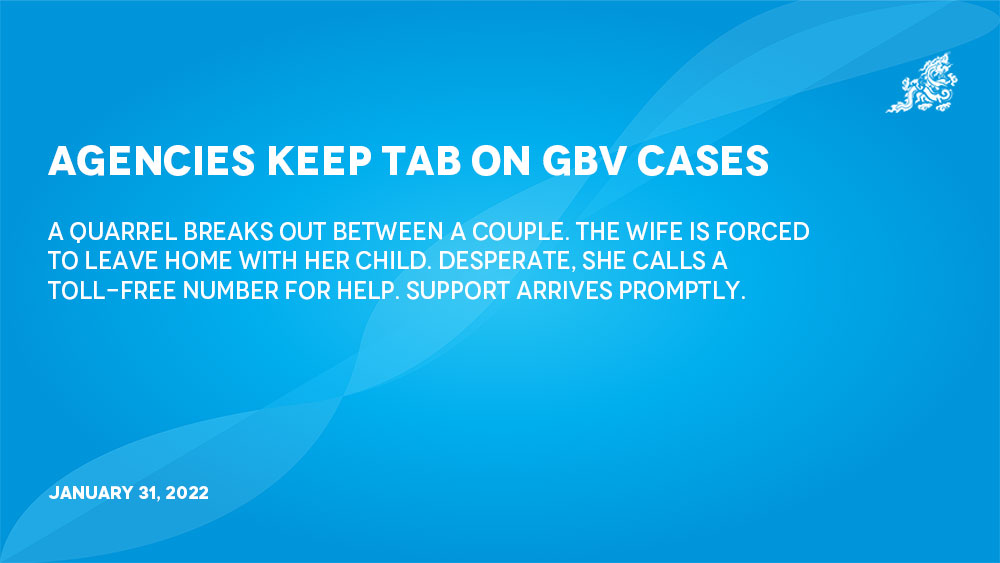Yangyel Lhaden
A quarrel breaks out between a couple. The wife is forced to leave home with her child. Desperate, she calls a toll-free number for help. Support arrives promptly.
This is a true story. However, upon the request from organisations concerned, the names and identity of persons are withheld.
Gender-based violence (GBV) occur in Bhutanese home too, but during lockdowns, triggered by numerous factors, such incidences reportedly are happening at a much greater number.
Chat or conversation groups for zones have myriad stories to share.
Some are asking when would the lockdown be over; others are asking about availability of chilli or hardware products. Many are grudgingly putting up with hiked prices of essential items even as the Office of Consumer Protection has said it would ensure that shopkeepers do not rip off customers in these difficult times.
But these are the general questions that are being asked among the people during lockdown. What doesn’t get asked are questions related to violence at homes, the result of which can be and have been devastating for individuals and families.
Respect Educate Nurture and Empower Women (RENEW) and National Commission for Women and Children (NCWC) have been receiving fewer GBV cases compared with previous lockdowns. RENEW has recorded six cases and NCWC received 48 cases, out of which 10 were GBV— Thimphu recorded six, Mongar two, and Tsirang and Chukha one each as of January 27.
In the second nationwide lockdown, between December 20 and January 15, RENEW recorded 223 GBV cases and NCWC received 86 phone calls.
An official said that services for GBV was enhanced at dzongkhag level from the Pema Secretariat which could be the reason organisations were receiving fewer cases now. The full extent and severity of GBV cases, however, is likely to be clear only after lockdown because data compilation will take time.
“ Only by the end of lockdown with data compilation we would be able to know the prevalence of GBV,” the official said. She added that various interventions such as awareness programme and enhanced services from organisations could also be the reason for decrease in GBV cases.
An NCWC official said that in collaboration Royal Bhutan Police and Jigme Dorji Wangchuck National Hospital, among others, the relevant organisations were addressing GBV. “At the local government level, women and children committee and gender and child focal persons are reporting GBV cases and facilitating emergency services.”
Causes of GBV are many and complex
An official with NCWC said that various forms of GBV recorded were triggered by abuse of alcohol, extramarital affairs, neglect, and economic abuse of spouse.
The survivors, he said, were provided with counselling and shelter services in collaboration with 1010 (toll-free) Pema Secretariat.
Head of Counselling Department with RENEW, Kesang Dolkar,said that GBV was triggered mostly by alcohol during lockdown, while in a few cases, it was economic violence whereby essentials were supplied to the family. “ Most victims were experiencing GBV prior to lockdown as well.”
She said that lack of communication between partners was the main reason for GBV. “ It is important to sort out issues by communicating well with your partner.”
A RENEW official too said that DV/GBV violence at home was mainly triggered by an alcohol. “However, during the lockdown,it seems that violence could have been caused due to confinement at home triggered by frustration, anxiety, lack of communication and understanding between the partners or families.”
Lack of means to buy basic essentials, she said, added to the stress that could have led to violence at home. “Some of the survivors who were experiencing GBV prior to lockdown are still seeking telephonic counselling sessions.”
RENEW has received 9 phone calls so far but not all were cases of GBV.
“RENEW have been facilitating with different service provider in order to ensure that the callers receive the right intervention services,” a RENEW official said.
RENEW and RENEW’s CBSS volunteers in 20 districts are closely working with the Pema Secretariat, Royal Office for Media, and NCWC to ensure prompt shelter and counselingservices to the survivors.


